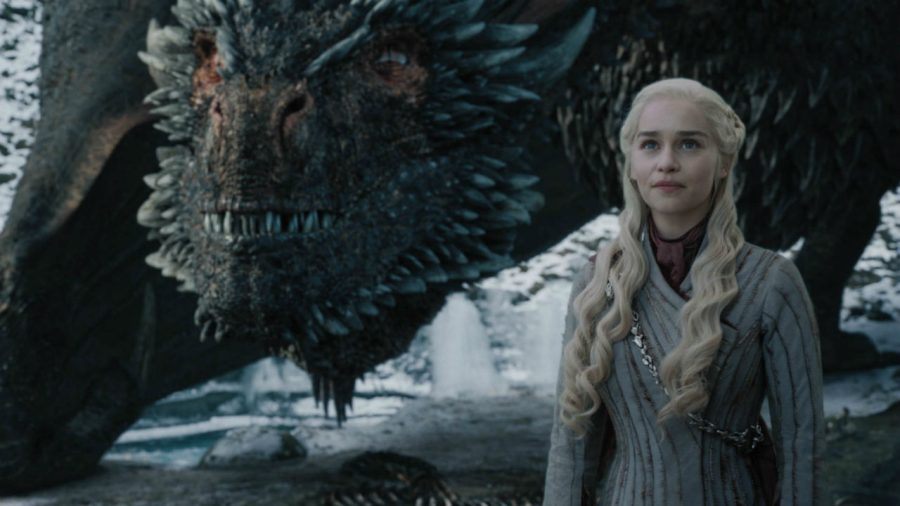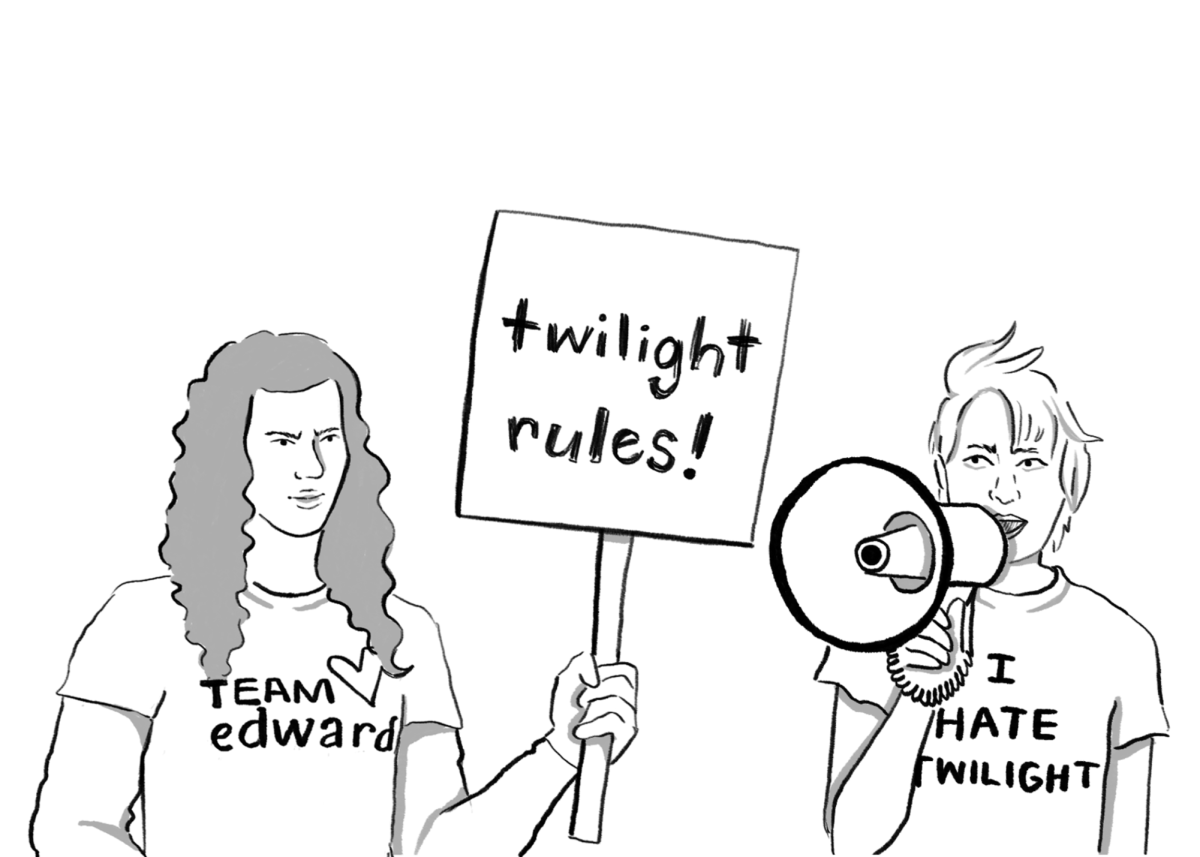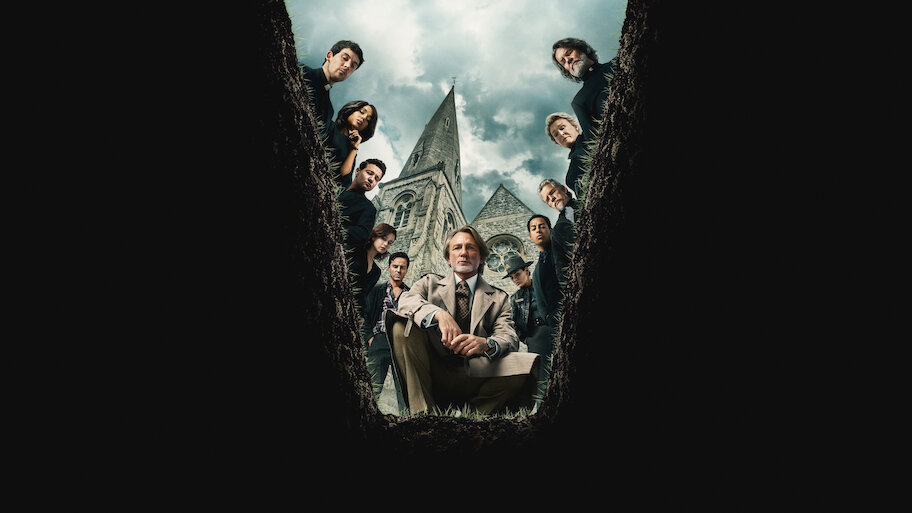The following review contains major spoilers for Season Eight of “Game of Thrones.”
Poorly developed and tactlessly rushed, the final season of “Game of Thrones” is a tragedy of missed potential.
Of course, it was never intended to get this big. When “A Game of Thrones” was first published in 1996, it was meant to be the first of a trilogy, doubtless beloved by a cult following of fans, but not watched earnestly by the whole world. When George R. R. Martin, already a successful fantasy writer in his own right, set pen to paper, he never could have imagined the millions that would wait for its conclusion in breathless anticipation. And on May 19, we got that conclusion, not penned by Martin, but by showrunners with a budget impossibly high. And after all these years of waiting, did it deliver?
Well … no.
For once, the biggest tragedy of “Game of Thrones” has nothing to do with dead bodies, and everything to do with the fact that it really didn’t have to be this bad. We still don’t know which parts of the plot were Martin’s and which were David Benioff and D. B. Weiss’, but the barebones, while still sure to disappoint some fans (you can’t please everyone) are good enough. A mad queen, an unlikely king — it straddles that sweet spot between not unearned and still unpredictable. But despite eight seasons in which to craft satisfying story arcs to bring the characters to this point, the ending of “Game of Thrones” still feels entirely rushed and out of place. Season Eight seems almost like the writers hadn’t even considered how the story might end until they began writing it. They try to push the characters in a completely left-field direction in six episodes, all the while throwing in as many twists as they could.
Maybe the most disappointing part is that so little mattered. The white walkers, ever present in the background of the entire series, always presented as a lurking final battle that would have to be reckoned with, were taken down in a single episode with minimal major character deaths. For all the foreshadowing, the Iron Fleet (though conveniently ineffective in the very next episode) delivered more meaningful punches than the literal zombie army ever did.
What was the point of this? Why did we sit through seasons of watching Kit Harrington in a parka fighting zombies if it was never going to matter? What made “Game of Thrones” stand out was the element apart from the wars of men — but at the end of the day, despotic rulers, not the cruel forces of nature, are shown as the real threat, sending a mixed message about a storyline often perceived as a metaphor for climate change. But this isn’t the only major plot thread left unaccounted. Why was Jon Snow brought back to life if he was going to play almost no role in defeating the white walkers? What was the point of any of Bran’s powers other than justification for making him king? Why have Jaime leave Cersei, go all the way to the North, only to do essentially nothing in the battle, sleep with Brienne, and then go all the way back to exactly the same place he had been just episodes ago? Why have Arya spend seasons learning to take on others’ faces only for her to do nothing of value with it?
But maybe the biggest question is: What was the point of Jon’s heritage? It was one of the biggest secrets in the entire franchise, theorized and obsessed over for years by dedicated fans, and in the end, removing the answer would have made almost no impact on the series.
At the end of the day, Season Eight boils down to one simple truth: this is not good writing.
Feelings about the actual events of the ending may come down to subjectivity, but their delivery, focusing on barebones plot with no regard for the complexity that has defined the series, is a failure. Season Eight neglects to acknowledge “Game of Thrones” for what it is — a complex and intricate story woven through the lives of countless characters. Yes, ending a story like that is difficult, but it’s also their job, just as it was their job to track the growth of their characters. Yet we saw everything Daenerys stood for derailed in a matter of episodes, Jaime turn his back on a series-long character arc over the course of a few minutes, the reportedly wise Tyrion made into a complete fool and then still rewarded with the position of Hand by the end, and Bran accomplish nothing despite his great powers. No matter the direction given by Martin, this is almost certainly not the way he would have accomplished it.
Of course, there are some highlights, saving graces that almost make it worth it. Sansa being crowned queen in the North was a rare earned bright spot in the series’ finale, and the cast and crew all do commendable jobs in making the season visually stunning. Emilia Clarke deserves a shout out for doing her best to sell her face-heel turn to the dark side, and there really is some great cinematography outside of the notoriously under lit Battle of Winterfell.
“Game of Thrones” is about a time of change — summer becoming winter, power based from one hand to another, and a young girl who has seen injustice in the world determined to “break the wheel.” Yet the story ends in a place of stasis. King’s Landing looks as sunny as ever, and Daenerys’ desire to destroy injustice is her downfall. This could serve as a pointed commentary about the world’s inability to change, but instead, we are expected to believe that Bran as king will mean something different for the world, without any indication of what that is. Bleak, hastily written, and in complete disregard of its own themes, “Games of Thrones” leaves us with one positive note: maybe the books will be better.
Grade: C-
Created by: David Benioff and D. B. Weiss
Starring: Emilia Clarke, Sophie Turner, Maisie Williams, Kit Harrington, Peter Dinklage, Nikolaj Coster-Waldau, Lena Headey, Isaac Hempstead-Wright, Gwendoline Christie
Premiered: April 14, 2019 on HBO














